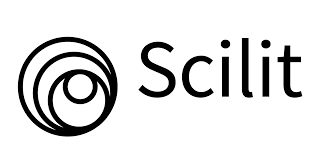Publication Ethics
Author Ethics
Author(s) must:
- explain the process and results of research or studies to the editor in an honest, clear and comprehensive manner, and keep research and study data properly and safely;
- ensure that the manuscripts that have been sent or submitted to the editorial staff are original, written by the author, and originating from the author's ideas, not plagiarism of other people's written works or ideas. Authors are strictly prohibited from changing the name of the cited reference source to the name of another person;
- explain to the editor that the manuscript sent to the editor is a manuscript that has never been sent to another journal publisher. If "redundancy" is found in the submission of the manuscript to another publisher, the editorial team will reject the manuscript sent by the author;
- have expertise in accordance with the JKTP focus;
- include the affiliation of the institution;
- immediately inform the editorial staff if errors are found in the writing of the script, both the results of the review and the edits. These typographical errors include writing names, affiliations or institutions, quotations, and other writings that can reduce the meaning and substance of the manuscript;
- understand the ethics of scientific publication above to avoid conflicts of interest with other parties, so that manuscripts can be processed smoothly and safely; and
- The author who sends the manuscript to the editorial staff is the first author, so that if there are problems in the publishing process, it can be resolved more easily.
Editor Ethics
Editor(s) must:
- ensure that the manuscript review process is thorough, transparent, objective, fair and accurate. This becomes the basis for the editor to make a decision on the manuscript, whether it is rejected or accepted. In this case, the editorial board acts as the manuscript selection team;
- ensure that the script writing guidelines for writers and other interested parties can be accessed and read clearly, both in printed and electronic versions;
- ensure peer reviewer(s), manuscript materials for review, and clearly inform the terms and process of reviewing manuscripts to peer reviewer(s);
- be objective, neutral, and honest in editing the manuscript, regardless of gender, business side, ethnicity, religion, race, class, and author's nationality;
- maintain any information properly, especially those related to the privacy of the author and the distribution of the manuscript; and
- understand the ethics of scientific publication above to avoid conflicts of interest with other parties, so that the manuscript publishing process runs smoothly and safely.
Peer Reviewer Ethics
Peer reviewer(s) must:
- honest, objective, unbiased, independent, and only in favour of scientific truth. The process of reviewing the manuscript was carried out in a professional manner without distinguishing between gender, business side, ethnicity, religion, race, inter-group, and the nationality of the author;
- ensure that the reference source / manuscript citation is appropriate and credible (can be accounted for). If errors or irregularities are found in the writing of the reference / quotation source, the reviewer must immediately inform the editorial staff to make corrections by the author according to the notes from the peer reviewer(s).
- responding to manuscripts that have been sent by the editorial staff and working in accordance with the predetermined manuscript review time (maximum 4 weeks). If you need additional time in reviewing the manuscript, you must immediately report to the editorial secretariat; and
- understand the ethics of scientific publication above to avoid conflicts of interest with other parties, so that the manuscript publishing process runs smoothly and safely.
Journal Management / Editorial Board Ethics
Journal Management must:
- describe the mission and objectives of the organization, especially those relating to policy making and journal publishing decisions without any particular interest;
- give freedom to reviewers and editors to create a comfortable work atmosphere and respect the privacy of the author;
- guarantee and protect intellectual property rights (copyright), and manage funds received by third parties in a transparent manner. Journal managers must also promote publication to the public by guaranteeing the usefulness of the use of the manuscript; and
- understand the ethics of scientific publication above to avoid conflicts of interest with other parties, so that the manuscript publishing process runs smoothly and safely.



.png)










